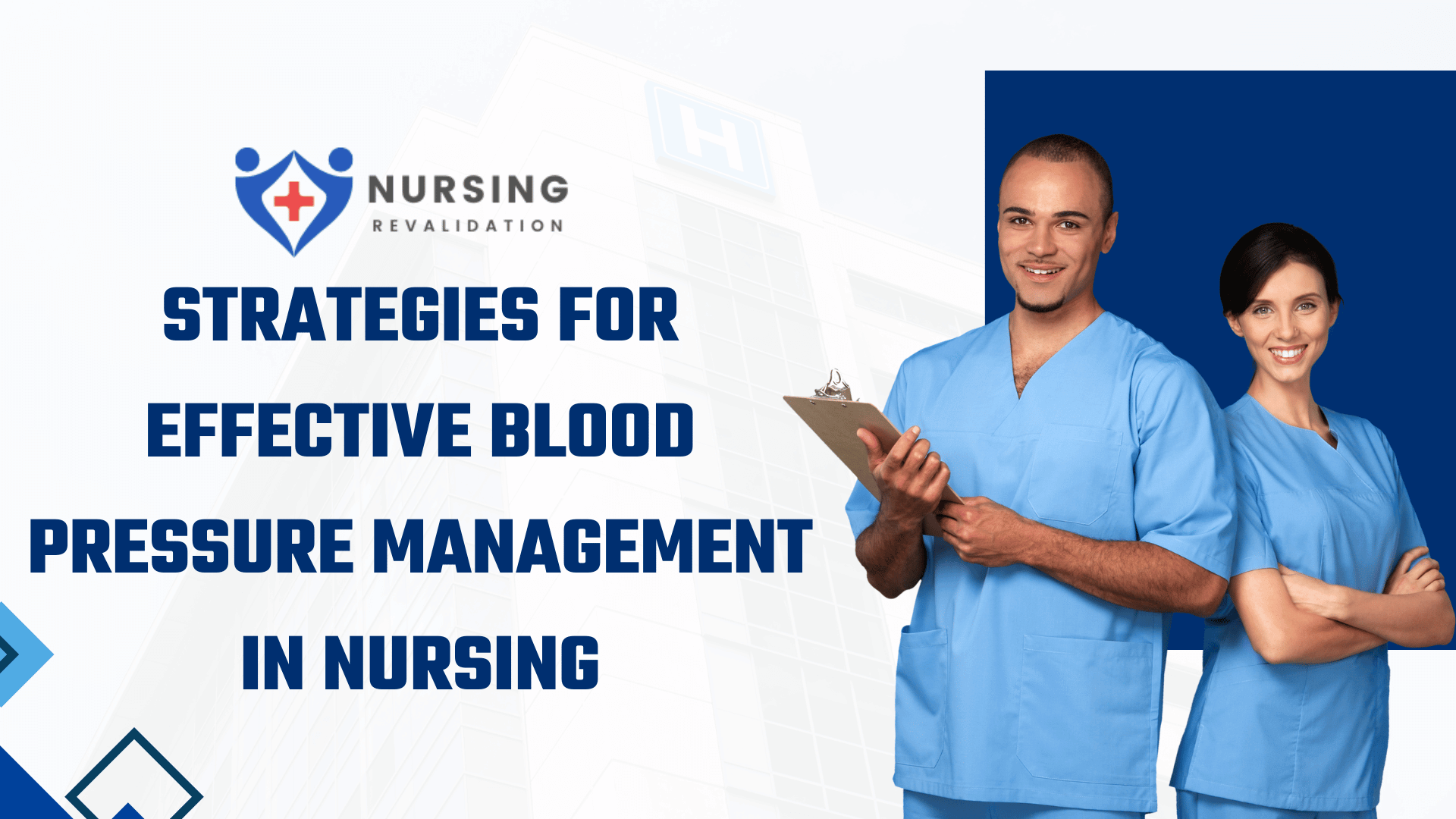High blood pressure, also known as hypertension, is a prevalent health concern worldwide, affecting millions of individuals across all demographics. As nurses play a crucial role in healthcare, it’s essential for them to possess comprehensive knowledge and skills in managing blood pressure effectively. This article delves into various strategies for effective blood pressure management in nursing, providing valuable insights for healthcare professionals to deliver optimal care to their patients.
Understanding Blood Pressure
Before delving into management strategies, it’s imperative to understand what blood pressure is and how it is measured. Blood pressure refers to the force exerted by circulating blood against the walls of blood vessels. It is typically measured in millimeters of mercury (mmHg) and consists of two values: systolic pressure (the pressure when the heart beats while pumping blood) and diastolic pressure (the pressure when the heart is at rest between beats). A blood pressure reading of less than 120/80 mmHg is considered normal, while readings above this range may indicate hypertension.
Table: Dietary Recommendations for Hypertension Management
| Food Category | Recommendations |
|---|---|
| Fruits and Vegetables | Consume a variety of colorful fruits and vegetables daily. |
| Whole Grains | Choose whole grains such as brown rice, quinoa, and oats. |
| Lean Protein | Opt for lean protein sources like poultry, fish, and tofu. |
| Low-Fat Dairy | Include low-fat dairy products such as yogurt and milk. |
| Healthy Fats | Incorporate healthy fats from sources like avocados and nuts. |
Risk Factors and Complications
Hypertension can lead to severe health complications if left unmanaged. Nurses must be aware of the risk factors associated with high blood pressure, including obesity, sedentary lifestyle, excessive salt intake, alcohol consumption, and genetic predisposition. Complications of hypertension include heart disease, stroke, kidney failure, and vision loss. By identifying risk factors and addressing them proactively, nurses can contribute to preventing the onset of hypertension and its associated complications.
Strategies for Effective Blood Pressure Management
- Lifestyle Modifications: Encourage patients to adopt healthy lifestyle habits, including regular exercise, a balanced diet rich in fruits and vegetables, limited alcohol consumption, smoking cessation, and stress reduction techniques such as meditation or yoga.
- Medication Adherence: Educate patients about the importance of taking prescribed medications consistently and as directed by their healthcare provider. Emphasize the potential side effects of medications and address any concerns or misconceptions the patient may have.
- Regular Monitoring: Implement routine blood pressure monitoring for patients, especially those at high risk of hypertension or with existing cardiovascular conditions. Utilize accurate and reliable blood pressure measurement devices and document readings accurately in the patient’s medical record.
- Patient Education: Provide comprehensive education to patients regarding hypertension, its risk factors, and complications. Empower patients to take an active role in managing their blood pressure through self-monitoring, lifestyle modifications, and medication adherence.
- Collaborative Care: Foster interdisciplinary collaboration among healthcare professionals, including nurses, physicians, pharmacists, dietitians, and exercise physiologists, to develop individualized care plans for patients with hypertension. Coordinate care efforts to ensure continuity and effectiveness in blood pressure management.
- Dietary Recommendations: Offer dietary guidance to patients, emphasizing the importance of a low-sodium diet, moderation in alcohol consumption, and the inclusion of potassium-rich foods such as bananas, leafy greens, and sweet potatoes. Provide resources and support for meal planning and adherence to dietary recommendations.
- Stress Management: Implement stress-reduction techniques in clinical practice, such as relaxation exercises, mindfulness-based interventions, and biofeedback therapy. Encourage patients to identify sources of stress in their lives and develop coping strategies to manage stress effectively.
Conclusion
In conclusion, effective blood pressure management in nursing requires a multifaceted approach encompassing lifestyle modifications, medication adherence, regular monitoring, patient education, collaborative care, dietary recommendations, and stress management techniques. By implementing these strategies, nurses can play a pivotal role in helping patients achieve and maintain optimal blood pressure levels, thus reducing the risk of cardiovascular complications and improving overall health outcomes. It is essential for nurses to stay updated on evidence-based practices and guidelines for hypertension management to deliver high-quality care to their patients.

